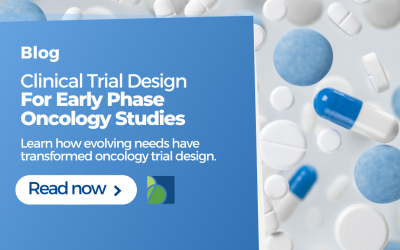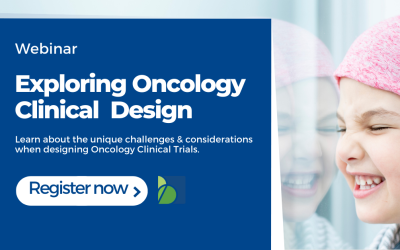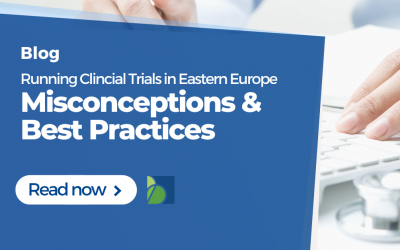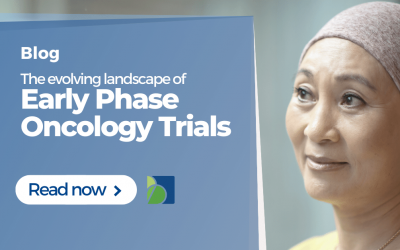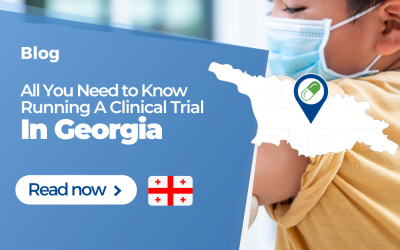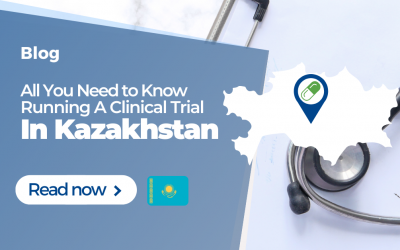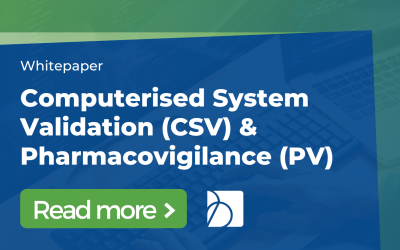
Choosing the right setting for your early phase trial can be challenging. As a sponsor, it’s natural to remain cautious about running more extensive early-phase patient trials in a single Phase I unit due predominantly to the doubt over actually being able to recruit large patient populations. Other points in this discussion include everything from costs and resource availability to in-house expertise, processes and equipment. However, based on years of experience, we can proudly say that efficient recruitment and involving KOLs in a single early phase unit is possible, without a doubt. A single-centre, early-phase trial with patients is cost-effective and has specific benefits over a multi-centre strategy, especially if the early phase unit is in a hospital. So, what are the advantages of a hospital-based Early Phase Unit?
We listed five reasons why Early Phase pharma and biotech companies consider or prefer an early phase / Phase 1 unit located within a hospital. Shortly, it’s a beneficial setup and can move your study to the next level quickly because of:
- An inherent focus on patient safety
- Plentiful academic experience
- A considerable pool of potentially eligible patients
- A wide variety of diagnostic procedures
- Simplified communication & Smooth execution
Safety First
You can be sure that patient safety is a No. 1 priority in any hospital. To ensure the safety and well-being of clinical trial subjects, patients or healthy volunteers, you must ensure maximum safety measures at your site. You should never risk patient safety in first-in-human or Phase 1 clinical trials (or any patient trial for that matter) and perform these studies under controlled conditions with the possibility of close medical team supervision as necessary by the study protocol.
According to EMA, any Phase 1 unit needs appropriately qualified staff, a vast abundance of required diagnostic equipment, and easy access to an Intensive Care Unit and other hospital facilities. In addition, best practices show that the ICU should be in the same building to ensure smooth patient transfer and care, thus guaranteeing subject safety.
Experienced investigators
Having the availability of many experienced investigators is a significant benefit to your clinical study as it can ensure smooth execution throughout the whole timeline. For example, VUL Santaros Klinikos is one of the largest hospitals in Lithuania, with more than 5000 employees, including 1600 medical doctors (MDs) and 2200 nurses. And Biomapas’ Phase 1 unit, BIO1, is right in the middle of all this.
Hospitals are bound to have several ongoing trials in different stages at any one time, and investigators are familiar with offering flexibility to tend to multiple studies. While it’s typical for an early phase unit to work in small teams to perform research activities, having so much expertise in one place allows you to scale up with ease quickly. So, the reach of an in-hospital early phase unit within the patient community often extends as far as the hospital’s complete patient base and its staff.
Such a wide selection lets you choose from a vast pool of specialists with extensive experience in different therapeutic areas, allows you to avoid study traffic and ensure timely and effective study conduct. In addition, experienced and qualified investigators can be easily approached for study feasibility and provide reliable prospective study patient numbers according to the inclusion/exclusion criteria, which brings us to our third advantage.
Rapid, effective patient enrollment
Most commercial Phase I units require a dedicated marketing and subject recruitment division in-house to recruit high volumes of healthy volunteers. The employees that staff these divisions are typically employed solely to recruit volunteers, leading to relatively high overhead costs. In addition, these units will typically rely on external databases to aid in recruiting and retaining potential volunteers for a variety of studies, depending on the subject demographic required.
In a hospital, it’s possible to recruit at a minimal cost and within short time frames for your upcoming and ongoing clinical studies.
The immense patient pool at their disposal allows early phase units to act immediately if a change in strategy is required to scale up or down recruitment activities on short notice. In addition, non-commercial clinical trials units typically show lower overhead because they employ one or more individuals to cover many aspects of the trials, from subject identification, recruitment, screening, clinical conduct, and post-clinical functions. These individuals may have a dedicated research function, but more often than not, are involved in the day-to-day clinical conduct associated with a hospital clinic.
Diagnostic procedures
Although we’re making significant steps in early phase research, we must work hard for results. Regulators put intense stress on patient monitoring and are demanding regarding the investigators and patient protocols, much more than you find in later-phase studies. It’s not an exception when a protocol requires multiple electrocardiograms, including a challenging schedule for PK measurements, biopsies, ancillary consults, a variety of imagings, and plenty of other time-consuming tasks.
Having a clinical trial unit on the hospital premises has an abundance of benefits, with the most important ones being:
- Easy scheduling of necessary procedures because the equipment and qualified personnel are already within reach.
- Quick transfer of clinical trial subjects between the facilities when needed;
- Brief carry out of procedures in established processes.
And perhaps the most critical factor of all is that the increased patient-centric approach increases quality and minimizes the risk of protocol deviations.
Simplified communication & smooth execution
A single-centre approach benefits your trial through simplified communication channels, something you cannot achieve when using multiple sites and third-party suppliers. Since you’re working with a single centre to conduct your trial, the sponsor company will speak to only a handful of people to communicate instructions and receive relevant feedback.
Suppose time is of the essence for a clinical trial. In that case, as is frequently the case for early-phase studies, this is a significant advantage because actions can be taken and reported swiftly and consistently. This is not always possible using a multicenter approach.
Smooth & timely execution
The last reason we want to mention is that a Phase 1 unit located within a hospital offers the simple, straightforward essential advantage of smooth execution.
- Having separate diagnostic facilities at the hospital guarantees the safety of the investigators and study participants;
- Having qualified study staff to coordinate patient admission and ensure confidentiality, if the study protocol requires it;
- And, most importantly, knowing that the ongoing studies will not disturb other daily department operations, thus guaranteeing the highest quality following relevant SOPs and protocols.
The well-being of patients during the trial and quality are the main pillars to successful study execution.
Clinical Trial Design For Early Phase Oncology Studies
Designing effective early-phase oncology trials is a complex and challenging task, requiring careful consideration of various factors, including patient selection, dosing, safety monitoring, and endpoint selection. In addition, developing targeted therapies has...
Oncology Study Design
Join us for a must-attend webinar on “Exploring Oncology Clinical Trial Design”, where expert speakers will share the latest insights.
Oncology trials in a shifting economical and geopolitical landscape
The pharmaceutical and biotech fields are spinning around, seeking to adapt to the current geopolitical situation and its impact on current and future oncology trials. Many trials have been shifted to other countries or regions while the complexity of managing risk...
Running Clinical Trials in Eastern Europe
It has become common practice for pharmaceutical companies to run clinical trials in Eastern Europe. However, it is also a common misconception that Eastern European countries only offer the lowest cost of operations as a benefit. This article shares insight into what...
All You Need To Know About Clinical Trials
So you want to improve your Clinical Trial expertise? Great! This field is snowballing and offers many opportunities for those with a suitable skill set. But before you dive in, it's essential to know what clinical research is all about. This article gives you a...
Selecting A CRO For An Early Phase Oncology Trial
As oncology drug developers, you likely know that selecting the proper Contract Research Organization (CRO) for your Phase 1 clinical trial is a crucial step in bringing your treatment to the market. This article provides insights for oncology drug developers when...
How Do Early Phase Oncology Trials Evolve?
In the last few years, a major breakthrough in cancer research has occurred: early phase oncology trials. This type of trial is designed to test whether a new drug has any adverse effects on people and also provides anecdotal evidence that it might be efficacious....
Running A Clinical Trial In Georgia
Moving Clinical Trials away from Ukraine and Russia Russia, Ukraine, and other CIS countries have been significant contributors to clinical trials in many therapeutic areas for several years. With access to experienced investigators, good quality, and large patient...
Running A Clinical Trial In Kazakstan
Moving Clinical Trials away from Ukraine and Russia For a long time, Russia, Ukraine and other countries in the Commonwealth of Independent States (CIS) have been the host of ample clinical trials in various therapeutic areas. And for a good reason: countries in the...
How to Avoid Delays in Your Early Phase Oncology Trial?
Many things can go array in your early phase oncology trials, from protocol development, taking care of a safety profile, getting the ethics committee / regulatory authority’s approval, managing vendors, and much more. They all cost precious time and increase the...

